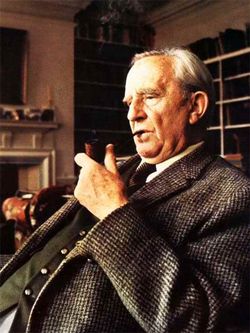
This post continues the explanation of the six honorifics recognized by the Riverside Tutorial.
We are a people of words and of the Word. Our language, English, occupies a unique place in the world, as it is truly a catholic language, universal in its usage and in its receptivity, an open and fluid democracy of words, encouraging immigration and assimilation, working ideas and exotic imports. Because of this, English has a larger vocabulary than any other, and contains words from more languages, living and dead, than any other. All languages can find a place within it, and bring their cultures and their ideas into it.
The master of words, the Wordsmith, is an invisible part of a culture. We all are wordsmiths to some extent, and children, more than most. However, the great poets were the ones who created necessary words the most abundantly, reusing familiar words in novel ways, in order to express thoughts most powerfully. The Chaucers, Shakespeares, and Miltons of the world passed the torch to the philologists of a later day, the Dictionary-makers, who hunted words and tried to pin them down, normalizing meaning and spelling.
The Wordsmith of today should be a mixture of both. He uses an extensive vocabulary, which he enjoys increasing. He knows the royal families of English words stretch back to Anglo-Saxon, Latin, and Greek, and can disentangle their genealogies. He knows the balance and heft of each word in his arsenal, its connotations and shades of meaning, and can choose a variety of synonyms to suit his purpose. He can decode new words based on its prefixes, root and suffixes, and from the context in which he encounters it. He can spell and pronounce words correctly, appreciating that the word is an organic whole.
Tragically our language is under attack, from advertisers and politician, sophists and philistines. Our boys must do the work of resurrecting the just words, defending the true ones, and destroying the double-speak of the world. The more varied our words, the sharper our words, the truer our language becomes, the closer we are to speaking like God, whose Word is what it signifies.
